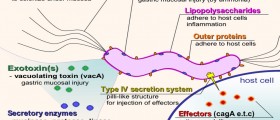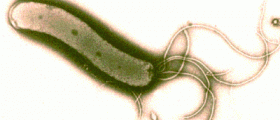
Gastritis is defined an inflammation of the lining of the stomach – mucosa. Chronic gastritis is a chronic gastric lesion characterized by inflamed mucosa. Gastritis usually develops as a side-effect of using nonsteroidal anti-inflammatory drugs, such as Aspirin or ibuprofen. However, it often results because of the prolonged and excessive alcohol consumption. Chronic gastritis is typically caused by bacterial infection by Helicobacter pylori, but it may also result from many other health conditions, including chronic bile reflux, autoimmune disorders and even the unmanaged stress. All of these may cause irritation of the mucosa and if the inflammation of the lining persists for a long time, chronic gastritis develops.
Signs and symptoms of chronic gastritis
In many cases, people suffering from chronic gastritis won’t feel any symptoms at all. However, when the symptoms start to show up, patients will typically complain about unpleasant feeling in the abdomen and the dull, vague, burning or sharp sensation. In most of the cases, the pain is located at the upper central portion of the abdomen, but it often feels anywhere in the abdominal region. Among other symptoms the most prominent are nausea, bloating, feeling of fullness, unexplained loss of appetite, weight loss, belching and vomiting. If the inflammation is very severe, the vomit may contain green or yellow pus, or even blood.
What happens in chronic gastritis?
As already mentioned, chronic gastritis is typically caused by Helicobacter pylori. This bacterium colonizes the stomach of more than half of the world’s population. It colonizes different areas of the stomach but most commonly it is found in the antrum, the initial portion of the pyloric part of the stomach. Helicobacter pylori cause chronic low-level inflammation of the stomach lining and sometimes leads to the development of duodenal and gastric ulcers, as well as the stomach cancer. The most interesting thing is that more than 80 percent of all individuals affected by Helicobacter pylori have no symptoms at all. However, the infection inside of the stomach is existing and the immune system produces proteins and antibodies to fight against it. Sometimes, the body targets the stomach, mistaking it for the foreign body, which severely damages and even destroys the stomach lining. Besides Helicobacter pylori, chronic gastritis is also caused by various medical conditions including Crohn’s disease, HIV and AIDS, connective tissue disorders and liver or kidney problems.
Diagnosis of the disease is typically based on the description of symptoms and by taking the blood test to determine if the Helicobacter pylori is present in the system.

















Your thoughts on this
Loading...